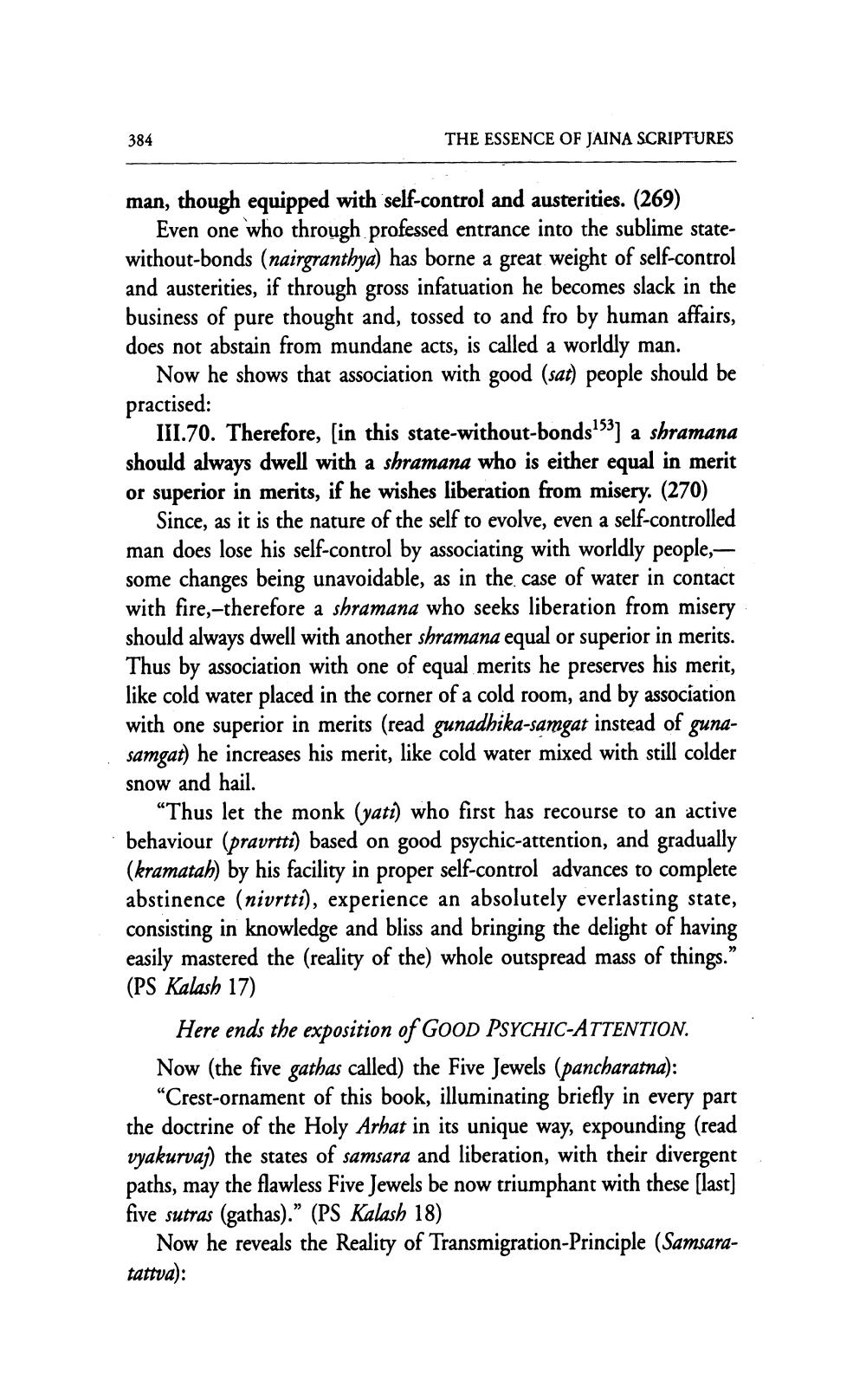________________
384
THE ESSENCE OF JAINA SCRIPTURES
man, though equipped with self-control and austerities. (269)
Even one who through professed entrance into the sublime statewithout-bonds (nairgranthya) has borne a great weight of self-control and austerities, if through gross infatuation he becomes slack in the business of pure thought and, tossed to and fro by human affairs, does not abstain from mundane acts, is called a worldly man.
Now he shows that association with good (sat) people should be practised:
III.70. Therefore, [in this state-without-bonds 153] a shramana should always dwell with a shramana who is either equal in merit or superior in merits, if he wishes liberation from misery. (270)
Since, as it is the nature of the self to evolve, even a self-controlled man does lose his self-control by associating with worldly people, — some changes being unavoidable, as in the case of water in contact with fire, therefore a shramana who seeks liberation from misery should always dwell with another shramana equal or superior in merits. Thus by association with one of equal merits he preserves his merit, like cold water placed in the corner of a cold room, and by association with one superior in merits (read gunadhika-sangat instead of gunasamgat) he increases his merit, like cold water mixed with still colder snow and hail.
“Thus let the monk (yati) who first has recourse to an active behaviour (pravrtti) based on good psychic-attention, and gradually (kramatah) by his facility in proper self-control advances to complete abstinence (nivrtti), experience an absolutely everlasting state, consisting in knowledge and bliss and bringing the delight of having easily mastered the (reality of the) whole outspread mass of things." (PS Kalash 17)
Here ends the exposition of GOOD PSYCHIC-ATTENTION. Now (the five gathas called) the Five Jewels (pancharatna):
"Crest-ornament of this book, illuminating briefly in every part the doctrine of the Holy Arhat in its unique way, expounding (read vyakurvaj) the states of samsara and liberation, with their divergent paths, may the flawless Five Jewels be now triumphant with these [last] five sutras (gathas).” (PS Kalash 18)
Now he reveals the Reality of Transmigration-Principle (Samsaratattva):




